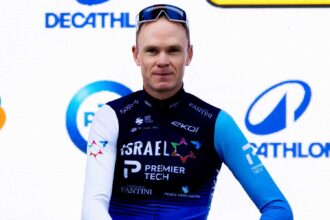History was made by Morocco, the first African and first Arab team to advance to a semi-final at the men’s football World Cup.
The Atlas Lions, endowed with impeccable organisation and defensive will, creative midfield passing, speedy offence and the rousing racket of its fans, broke the elusive World Cup glass ceiling against Portugal to face France in the final four in Qatar.
Below are what has helped Morocco thrive in the tournament.
Collective Team spirit
ATTENTION: Click “HERE” to join our WhatsApp group and receive News updates directly on your WhatsApp!
Morocco has demonstrated the ultimate collective team spirit to eliminate higher-ranked teams that boasted a generous supply of star individual talents – Belgium, Spain, and Portugal.
What Morocco lacked in stardom was compensated by the sheer desire to win and technical application by the whole team.
Their quarter-final goal, coming after repeated defensive pressure, was scored in the 42nd minute. Some good touches led to Yahya Attiat Allah fielding the ball, controlling it and then sending a cross into the box.
There, Youssef En-Nesyri seemed to rise forever above the outstretched hands of the tall Portuguese defenders, to head it in from the centre. The fluid passing was beautiful to watch, leaving Portugal bewildered and eliciting pandemonium in the stadium that rippled around the world.
Re-Writing History
Motivated by a desire to go past the quarter-final, Morocco had to learn from history.
The last three African sides to reach World Cup quarter-finals – Cameroon in 1990, Senegal in 2002 and Ghana in 2010 had gone out most painfully, in overtime. In each of these cases, the African teams lacked the composure to see through their leads.
The Atlas Lions defended with all of their hearts and then scored, preventing any possibility of overtime. Even injuries and striker Walid Cheddira being sent off after a second yellow card did not destabilise the defensive rhythm of the team.
Portugal, including star player Cristiano Ronaldo, could not find an equaliser. From the beginning, the Moroccans looked determined that history would be made.
Strong Defences Win Tournaments
Heading into the semi-finals, only Morocco and Croatia, who drew in the first round, remain unbeaten.
In the round of 16, they eliminated Spain on penalty kicks, where their goalkeeper Yassine Bounou made huge saves to propel Morocco to the quarter-finals.
The elimination of Portugal, just like Spain, came on the back of a solid defence that conceded no goals. It is often said that defences win the championship.
If that’s the case then Morocco has the qualifications to win it all. But they must believe in their strengths and summon sufficient energy to defend for long periods in the upcoming matches.
Fans are the 12th player
Morocco finds itself in the unique position of carrying the dual hopes of the Arab region as well as the African continent.
The quarter-final felt like a home game for Morocco, with the team’s supporters dominating in the stands.
The Moroccan fans cheered the team, jeered Portuguese players and relentlessly willed on their heroes. After the final whistle, the stadium erupted as thousands jumped up and down, hugging and embracing.
With fans acting as the 12th player for Morocco, it would not be a big shock if the Atlas Lions can dig deep and mount one more upset to make it to the finals.
Star Players Turn Up
Despite the pressure of bearing the burden of history, the Atlas Lions have demonstrated that they have the technical and tactical capacity to cope. Indeed, the team has been steady, organised, serene, defensively sound, creative in midfield and smart and efficient in attack.
Bounou, Achraf Hakimi, Azzedine Ounahi, Romain Saiss, Sofyan Amrabat, En-Nesyri and Hakim Ziyech have been Morocco’s stand-out performers.
Historically, Morocco has been a trailblazer at the World Cup for Africa and was not fazed by Spain and Portugal. This team will present a difficult challenge for France in the last four on Wednesday.
Walid Regragui the new ‘Messiah’
Walid Regragui has installed an effective defend-and-counter style that none of their opponents has come close to solving so far.
Regragui has ingeniously set up and steered the team to the semi-finals and, in the process, changed the false narrative that local African coaches are not equal to the task of masterminding team success at this level.
Indeed Regragui’s side, despite missing West Ham’s Nayef Aguerd, Bayern Munich’s Noussair Mazraoui and losing captain Saiss to injury, has shown that an African coach can creatively harness both the skills and the will of the players to achieve national glory.

